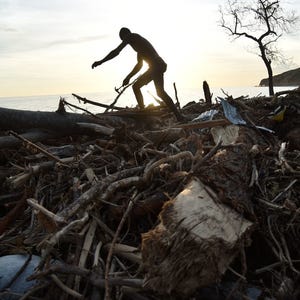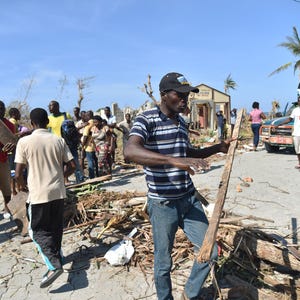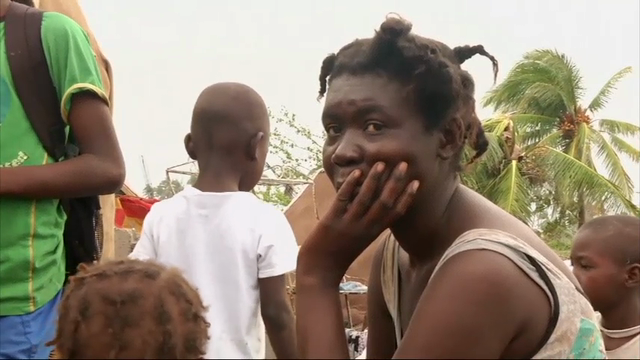

(Photo: Dieu Nalio Chery, AP)
Sometimes words just don’t suffice.
In Haiti, compelling images emerging from the Caribbean island depict a nation grappling to stave off a humanitarian crisis after being dealt a blow from Hurricane Matthew one week ago.
The National Civil Protection agency in Port-au-Prince lists the death toll at 473, but other reports say the number is at least 900.
Amid the anguish and heartache, however, there are stories of survival and grit as Haitians band together and take the recovery effort into their own hands.
Here is what Haiti – a nation still recovering from a massive earthquake in 2010 – looks like, one week after Matthew roared ashore.
People scramble to get off a boat carrying aid as national police secure the vessel on a dock in Jeremie on Wednesday.
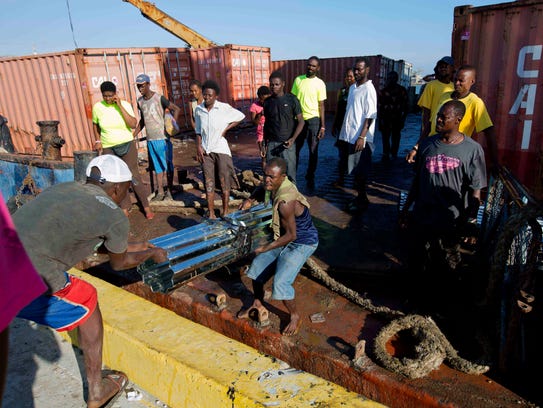 — (Photo: Dieu Nalio Chery, AP)
— (Photo: Dieu Nalio Chery, AP)
Haitians on Wednesday lift sheets of metal away from a boat delivering much-needed aid packages.
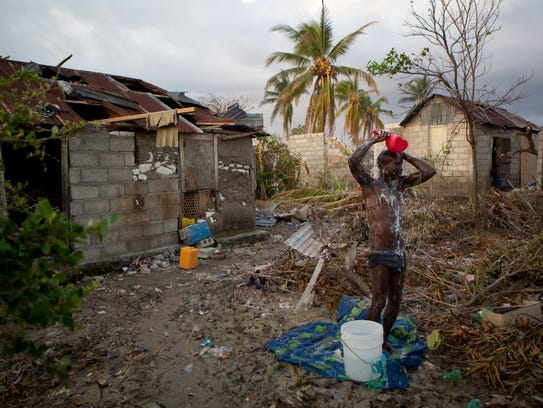 — (Photo: Rebecca Blackwell, AP)
— (Photo: Rebecca Blackwell, AP)
Yvald Saint Joy bathes on Tuesday in a backyard littered with hurricane debris in Sous-Roche, outside Les Cayes. He said he did patchwork roof repair himself on the house he shares with his father and two younger siblings.
The United Nations has called for $120 million in aid, noting that about 750,000 people in southwest Haiti alone will need “life-saving assistance and protection” in the next three months. Overall, at least 1.4 million people need assistance, the U.N. said.
 – (Photo: Rebecca Blackwell, AP)
– (Photo: Rebecca Blackwell, AP)
Residents on Tuesday burn debris and work to repair damaged homes as dusk falls in Sous-Roches.
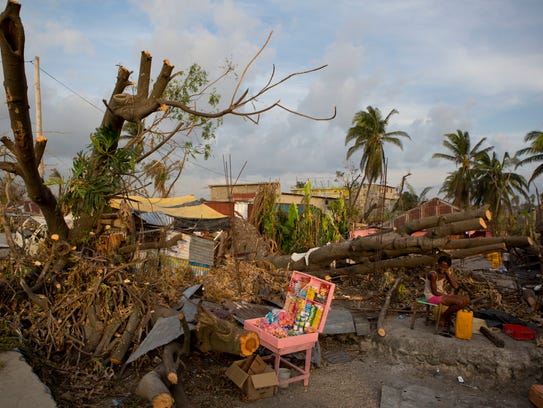 – (Photo: Rebecca Blackwell, AP)
– (Photo: Rebecca Blackwell, AP)
A young woman sells cookies, candy and cigarettes from a stand in her front yard, now littered with debris and fallen trees in Les Cayes.
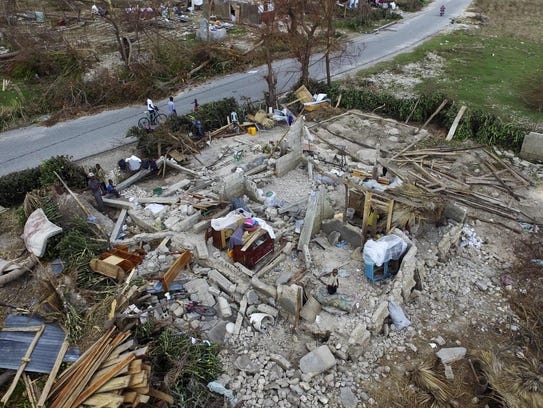 – (Photo: Nicolas Garcia, AFP/Getty Images)
– (Photo: Nicolas Garcia, AFP/Getty Images)
An aerial view shows a destroyed home in Port Salut, southwest of Port-au-Prince.
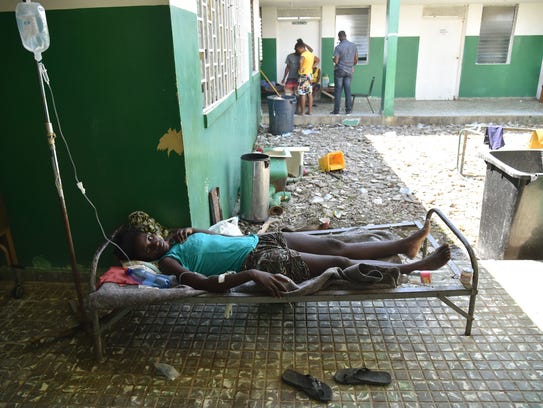 – (Photo: Hector Retamal, AFP/Getty Images)
– (Photo: Hector Retamal, AFP/Getty Images)
A woman with cholera symptoms receives medical attention at the health center of Les Anglais on Tuesday. Cholera is an infectious and often fatal bacterial disease of the small intestine that is usually contracted from infected water supplies.
Many Haitians have already started burying bodies, which complicates the accuracy of the toll. About 175,000 people are living in shelters; a few dozen cases of cholera have surfaced.
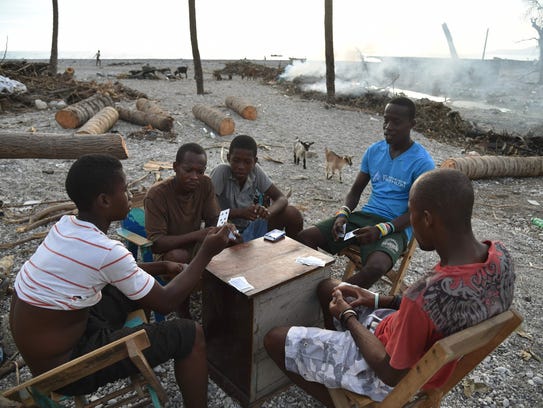 – (Photo: Hector Retamal, AFP/Getty Images)
– (Photo: Hector Retamal, AFP/Getty Images)
A group of men play cards next to damaged houses in the commune of Chadonyer in Les Cayes on Tuesday.
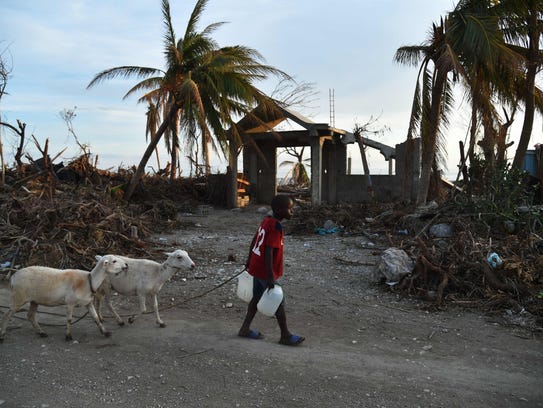 – (Photo: Hector Retamal, AFP/Getty Images)
– (Photo: Hector Retamal, AFP/Getty Images)
A boy on Tuesday walks with goats past destroyed houses in the small village of Labey in Les Cayes.
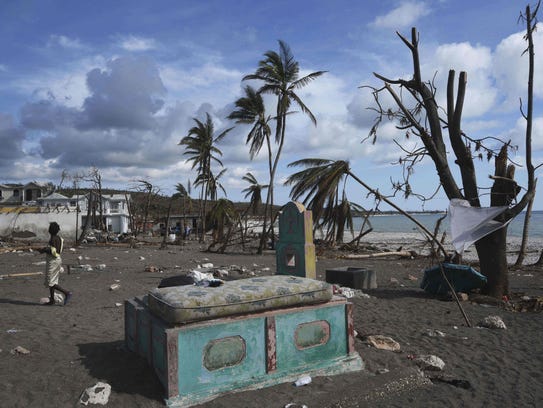 – (Photo: Rodrigo Arangua, AFP/Getty Images)
– (Photo: Rodrigo Arangua, AFP/Getty Images)
A mattress is dried in the sun on a grave at a beach destroyed by Hurricane Matthew in Port Salut, southwest of Port-au-Prince.
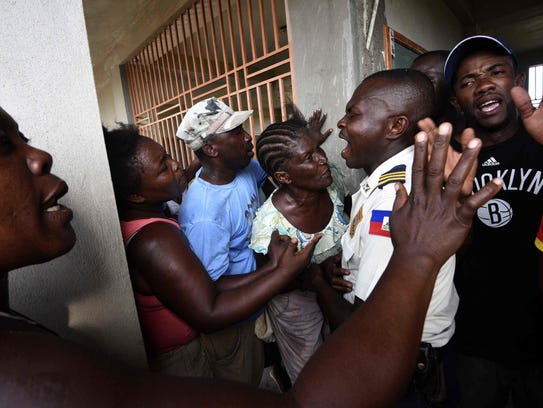 – (Photo: Rodrigo Arangua, AFP/Getty Images)
– (Photo: Rodrigo Arangua, AFP/Getty Images)
Haitian police try to control a crowd on Tuesday after handing out aid in Port-Salut.
